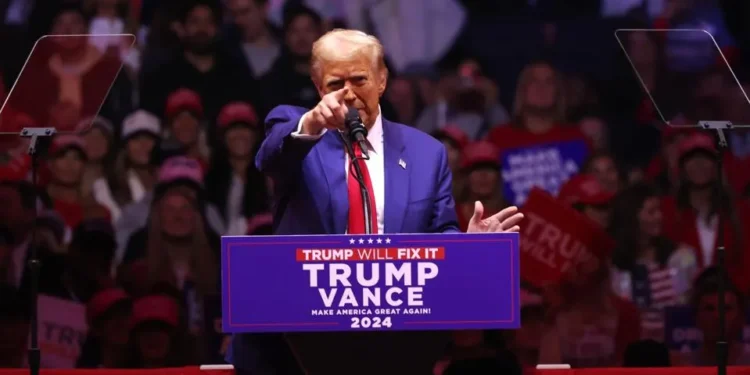On the campaign trail, Donald Trump promised that, if re-elected, he would initiate the largest mass deportation of undocumented immigrants in U.S. history starting on Day 1. Now, as president-elect, he is reiterating that commitment, signaling a tough stance on immigration enforcement and national security.
In a recent interview with NBC News, Trump clarified his position, saying, “It’s not a question of a price tag. It’s not — really, we have no choice.” He emphasized the urgency of his plan, stating that individuals involved in violent crime or drug trafficking should be removed from the U.S. He added, “When people have killed and murdered, when drug lords have destroyed countries, and now they’re going to go back to those countries because they’re not staying here. There is no price tag.”
Trump’s vow to address undocumented immigration head-on aligns with his long-standing rhetoric about border security and crime. The U.S. is estimated to have around 11 million undocumented immigrants, according to 2022 figures from the Department of Homeland Security. However, Trump has often claimed that the actual number is much higher, without providing supporting evidence.
His mass deportation strategy, if implemented, would come at a substantial financial cost. According to a report by the American Immigration Council, the price tag for deporting this many individuals could exceed $315 billion. Critics argue that such an undertaking would stretch government resources and lead to widespread disruption. Nonetheless, Trump appears resolute, placing national security and law enforcement priorities above budgetary concerns.
A key aspect of Trump’s rhetoric has been framing the issue of immigration as a matter of national survival, presenting undocumented immigrants as a threat to American communities. He has often described the situation as an “invasion,” and argued that violent criminals, including drug lords, are entering the country and wreaking havoc. This narrative has fueled fears that immigrants are responsible for rising crime, economic instability, and even political corruption.
In the same interview, Trump reinforced his belief that Americans want stronger border controls but also favor legal immigration. “They want to have borders, and they like people coming in, but they have to come in with love for the country,” he said. “They have to come in legally.”
Critics argue that such statements exaggerate the role of immigrants in these problems and may foster division and fear, but Trump’s message resonates with a significant portion of the electorate who feel that the U.S. immigration system has been mismanaged and that unchecked immigration poses a threat to the nation’s security and culture. His emphasis on the need for legal immigration, coupled with his focus on the rule of law, continues to be a central element of his political identity.
While the scale of his proposed deportation effort remains uncertain, Trump’s stance on immigration is clearly a defining feature of his political platform. Whether this policy will gain traction in the coming months or face significant opposition remains to be seen. What is clear, however, is that the debate over immigration policy, particularly on issues like border security and the treatment of undocumented immigrants, will continue to shape the political landscape in the years ahead.
Discover how the election will affect American workers:


